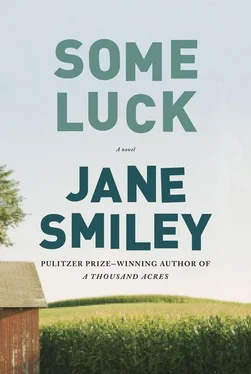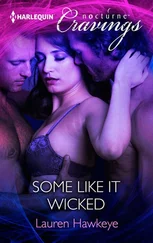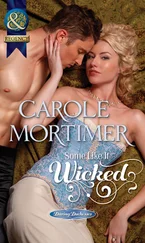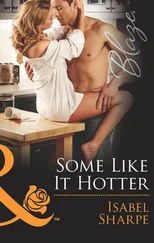But they hadn’t made progress. Frank and Professor Cullhane had tried to reduce the cornstalks to char in fourteen different ways in order to produce a purer, less smoky product. They had taken the char and ground it into powder, milled it into granules of several different sizes, sieved it through a flour sifter and cheesecloth and medical gauze. Professor Cullhane had been careful about where he got his sulfur and his saltpeter — he had even made himself some saltpeter by going over to the vet school and loading wheelbarrows of cattle manure, sheep manure, and horse manure (all carefully separated) into tanks that he purchased. Frank could see that it wasn’t going to work, and when, in the fall, they had gone out shooting (supposedly pheasant along the railroad tracks, just to pretend that they were doing something normal), Professor Cullhane had come back profoundly discouraged — the barrels of their guns, new when they started, were already showing the effects, much more quickly than the professor had expected. No modern army would fight with this stuff. Cullhane had said to Frank, “If the Germans invade, we aren’t going to hold them off for long with this.” Frank had laughed, but Cullhane hadn’t been joking. It was then that Frank realized that Cullhane really did think that the Germans might invade. Even at twenty, Frank didn’t see how that was possible.
But then the college had come to Professor Cullhane, and given him more money — two thousand dollars — to continue with his “war work,” and it turned out that a lot of that money came straight from the army. Frank was happy to keep getting a paycheck, especially since Cullhane, now that they had a larger workforce, wanted to go over every single process they had already tried, just to see if they’d made a mistake. The paycheck combined with the — okay, he could admit it — strangeness of the project and his feelings of luxurious comfort in Ames persuaded Frank to take fewer classes, extend his degree for another year. And, anyway, what else was there for him to do with himself?
After the meeting broke up, Frank took the other two undergrad boys out behind the Chemistry building in the freezing cold and showed them the manure tanks. He said, “We need to scrub those out and fill them again. I suppose we should start right now.” Bill, who said he was from a farm over by Sioux City, stepped forward, but Sandy, who was from Des Moines, stepped back, his jaw dropping. That look on his face, that city-boy, frat-boy look, gave Frank the best laugh of his day.
IT WAS AUGUST, no school. Lillian was at Granny Elizabeth’s, helping her can tomatoes, beans, and peaches. Joe was cultivating the cornfield behind the barn, and Mama and Claire were taking a nap. It was not a terribly hot day, Henry thought, but it had been so hot all week that he had slept in only his drawers, with all the windows and doors open. Mama told him not to complain — didn’t he remember four years ago, when it was over a hundred for weeks on end and the well almost dried up? Mama hated complaining. But Henry didn’t remember that. Summer was summer, winter was winter. One was unbearably hot, and the other was unbearably cold.
Papa had to go to another farmer and buy a part for the oat thresher, and he told Henry to come along. As soon as they drove in the lane and pulled up beside the barn, Henry saw that there were boys here. One was a little older than he was — dressed in overalls, no shirt, barefoot. The other was big, at least twelve, and dressed the same way. The minute they got out of the truck, the farmer said, “Well, now, I meant to find that thing and I forgot all about it. It’ll just take a second. What’s your boy’s name? Henry? Henry, you go off with Sam and Hike here. Boys, half an hour of peace, please.”
Sam was the younger boy, Hike the older one. As soon as they were out of sight of the barn, Hike kicked his brother in the backside, and then laughed. Sam turned on him and punched him in the stomach. It was Hike who started to cry. Henry slowed down, and the other two got pretty far ahead. They turned around. But they didn’t run at him — Sam just called out, “Don’t mind Hike. He’s just slow. He can’t even read.” Henry didn’t like to, but he caught up. They were heading toward a field where horses were grazing, and he liked horses. He counted them; there were six, four chestnuts and two blacks. Hike and Sam climbed on the fence, and then Henry did, too. The three of them hung their elbows over the top rail, and Henry said, “What are their names?”
Hike said, “Daisy, Rose …” He paused.
Sam added, “Daffodil, Iris, Hawthorn, and Poppy. Ma names them. She likes flowers.” Iris and Daisy, two chestnuts with white blazes, came to the fence, and the boys petted their noses. Hike said, “Let’s go to the ravine.”
“Yeah,” said Sam. “There’s something there.”
“What?” said Henry.
“Another horse,” said Sam.
But the horse was dead. Henry could see that from the rim of the ravine. It was lying there, a big white, bulky, fly-covered mound. It was scary and repulsive — the eyes were gone, the hanging tongue was black, and the coat was crusted over with something. Only the tail was strangely graceful — long, pale, and curving across the dry dirt. “Something’s going to happen,” said Hike.
“What?” said Henry.
“You’ll see.”
The two boys ran down the slope of the ravine and picked up sticks. Sam shouted, “Come on!”
Henry made his way down, sliding as best he could on his heels. It was almost midday, and the sun, high in the summer sky, was pouring heat into the ravine, which was full of other trash, too. Henry tried to step carefully. The other two boys ran around barefoot, even though there were nails everywhere, and wooden boards broken into splinters, and sharp stones, and parts of all sorts of things sticking up. But they took their sticks and scurried about the horse anyway, poking it and whacking it. Sam shouted, “Get a stick! There’s some over there!” He pointed, but Henry didn’t do anything, just stood for a minute by the horse’s head, then stepped away from there, so that he wouldn’t have to look at the eye sockets. Surprisingly, the horse didn’t smell very terrible — but it was huge, much bigger than the horses in the pasture. The boys were particularly intent on beating it across the belly, hitting, then poking, then hitting, then poking. There seemed to be a plan, and it wasn’t until the horse exploded that Henry understood what the goal was.
Hike had been beating the belly just in front of the back leg, and then he smacked it furiously one time and poked it leaving a hole. The hole made a sound, and then a line along the bottom of the belly ripped open, and gas and liquid leapt out, the belly ripped in another spot, and more gunk poured forth. Most of it flowed, but some of it popped, and bits landed on all of the boys, including Henry himself. It was the worst thing he’d ever smelled, and it was on him in stinking dots. Hike and Sam started laughing and jumping around, even though it was on them, too. Henry thought he was going to pass out and fall down.
Papa’s head, and then the head of the farmer, appeared above the rim of the ravine, and the farmer shouted, “Goddamn you boys! I told you to stay away from this dump! I am going to whip the hides off you! I say stay away, you don’t think I mean stay away?” He came sliding down the slope, and Sam and Hike ran up the other side, dropping their sticks on the way. Henry could see Papa and climbed up to him. Papa said, “Let’s go. Never should have come here. These are lowlifes here. Didn’t even have the part, and tried to sell me six other things. That stinks!”
He told Henry to take off his shirt and throw it in the back of the truck. When they got home, he sent him to the spigot by the barn and had him scrub it. Henry did it pretty well, he thought. But he doubted that he would wear that shirt again.
Читать дальше












